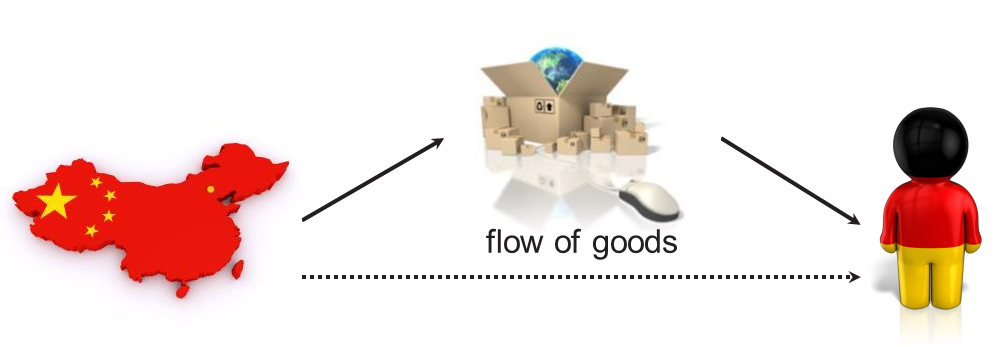1 Background
In accordance with sec. 25e para. 1 of the German VAT Act, online marketplaces can be held liable if online traders carry out taxable supplies without paying VAT in Germany. An online marketplace may avoid becoming liable for an online trader’s VAT liability if it has the online trader’s tax registration certificate (sec. 22f para. 1 sentence 2 of the German VAT Act). The regulations on marketplace liability have now been significantly tightened by virtue of the new regulations of the Annual Tax Act 2020 (draft). In certain cases, a chain transaction is deemed to exist according to sec. 3 para. 3a of the German VAT Act (draft), between an online trader, an electronic interface (e.g. online marketplace) and an end customer. The electronic interface (e.g. online marketplace) thus becomes liable for VAT. In these cases, the provisions laid down in sec. 22f para 1, 25e of the German VAT Act do not apply.
2 Entry into force
According to the Annual Tax Act 2020 (draft), the new regulations were to enter into force on 1 January 2021, a date in keeping with the current provisions in the VAT Directive. However, the European Council has accepted the proposal of the European Commission to postpone the e-commerce package, due to the coronavirus crisis, and the new regulations will therefore enter into force on 1 July 2021.
3 Deemed chain transaction
Taxable persons who promote the supply of goods by using an electronic interface are treated as if they had acquired and supplied the goods themselves according to sec. 3 para.3a of the German VAT Act (draft). The term "electronic interface" is to be understood very broadly. It refers not only to electronic marketplaces, platforms and portals, but also to all other comparable electronic interfaces falling within its scope of application.
Sec. 3 para. 3a of the German VAT Act (draft) covers the following two cases of application:
- Supply of goods, the transport or dispatch of which begins and ends within the Community territory, carried out by a taxable person not established within the Community territory to a non-taxable person (sec. 3 para. 3a sentence 1 of the German VAT Act (draft)). Example: Dispatch of goods by a Chinese taxable person from a warehouse in the EU to a private person in Germany.

- Distance sales of goods imported from a third country in consignments with an intrinsic value not exceeding EUR 150 (sec. 3 para 3a sentence 2 of the German VAT Act (draft)). Example: Dispatch of goods with a value of EUR 100 from a taxable person in China to a private person in Germany.

The supply from the electronic interface (e.g. online marketplace) to the end customer always constitutes the supply the transport is ascribed to within the deemed chain transaction (sec. 3 para. 6b of the German VAT Act (draft)). This applies regardless of whether the online trader or the electronic interface (e.g. online marketplace) orders the transport of the goods. The new regulation on the place of supply for distance sales, in accordance with sec. 3c of the German VAT Act (draft), applies to the supply from the electronic interface (e.g. online marketplace) to the end customer. The electronic interface (e.g. online marketplace) can declare this transaction in the so-called One-Stop-Shop, insofar as it exceeds the supplies threshold of EUR 10,000 (from 2021 uniform across the EU) or waives its application.
4 Consequences for the practice
The introduction of the regulations on marketplace liability as of 1 January 2019 previously drew much criticism, particularly in light of the planned 2021 VAT e-Commerce package. Online marketplaces had to make extensive system adjustments as early as 1 January 2019 in order to comply with the regulations on marketplace liability. Online marketplaces will again face practical challenges due to the new regulations in the Annual Tax Act 2020 (draft). They must identify those cases in which there is a deemed chain transaction in accordance with sec. 3 para.3a of the German VAT Act (draft). Since online marketplaces become liable for VAT in these cases, adjustments in VAT determination and accounting / ERP systems, as well as the provision of appropriate evidence (e.g. residence certificates from online traders) are required.
Contact:
Dr. Matthias Oldiges
Lawyer
Phone: +49 211 54 095 366
matthias.oldiges@kmlz.de
as per: 28.07.2020
